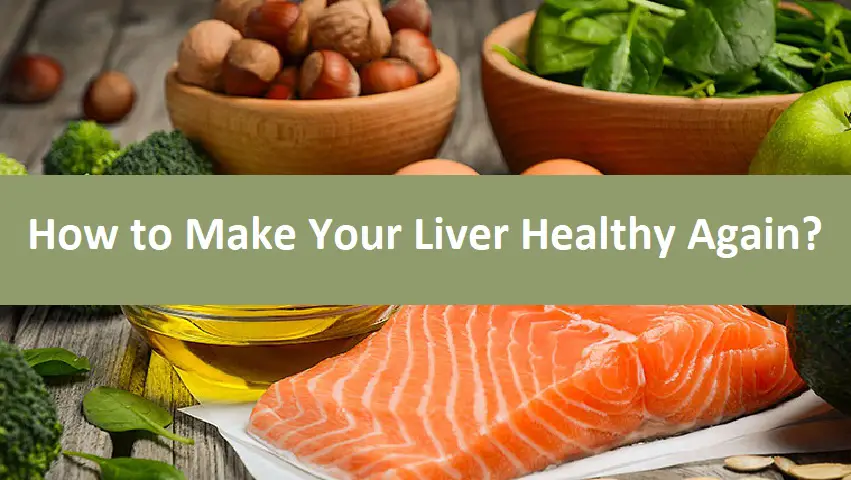In this article, you will learn about the importance of maintaining a healthy liver and the potential consequences of liver diseases. We will explore common liver diseases, their causes, symptoms, and treatment options.
Additionally, we will discuss ways to protect your liver and maintain its health through healthy lifestyle habits.
By the end of this article, you will have a better understanding of the importance of liver health and how to take steps to prevent and manage liver diseases.
Importance of Healthy Liver
The liver is one of the most vital organs in the body and plays a crucial role in many bodily functions. It is responsible for filtering toxins and waste products from the blood, producing bile to aid in digestion, regulating blood sugar levels, and storing essential vitamins and minerals.
A healthy liver is essential for overall health and well-being, and any damage to the liver can lead to serious health problems. Chronic liver disease, liver cancer, and liver failure are all potential consequences of poor liver health.
Therefore, it is important to take steps to maintain a healthy liver through a balanced diet, regular exercise, limiting alcohol consumption, and avoiding exposure to toxins.
By taking care of your liver, you can help ensure that your body stays healthy and functioning properly.
Liver Diseases
Liver diseases are conditions that affect the liver’s ability to function properly. Some of the most common liver diseases include:
- Fatty liver disease: A condition where fat accumulates in the liver cells, which can lead to inflammation and scarring.
- Hepatitis: Inflammation of the liver, caused by viral infections (hepatitis A, B, and C), autoimmune diseases, or excessive alcohol consumption.
- Cirrhosis: A chronic liver disease that occurs when liver tissue is replaced by scar tissue, leading to loss of liver function.
- Liver cancer: Cancer that begins in the liver cells or spreads to the liver from other parts of the body.
- Wilson’s disease: A rare genetic disorder that causes copper to accumulate in the liver and other organs.
- Hemochromatosis: A genetic disorder that causes the body to absorb too much iron, leading to iron accumulation in the liver and other organs.
- Primary biliary cholangitis: A chronic autoimmune disease that damages the bile ducts in the liver.
- Primary sclerosing cholangitis: A chronic disease that causes inflammation and scarring in the bile ducts, leading to liver damage.
These liver diseases can cause a range of symptoms, including fatigue, jaundice, abdominal pain, and nausea. Treatment options depend on the specific liver disease but may include lifestyle changes, medications, or surgery. Early detection and treatment are important for preventing further liver damage and improving outcomes.
How to Make Your Liver Healthy?
Here is an outline of steps you can take to make your liver healthy again:
- Avoid alcohol: One of the most important steps in keeping your liver healthy is to avoid alcohol. Alcohol is a major contributor to liver disease and can cause irreversible damage to your liver.
- Maintain a healthy weight: Being overweight or obese can put a strain on your liver, leading to fatty liver disease. Losing weight through diet and exercise can help reduce this risk.
- Eat a healthy diet: Eating a healthy diet rich in fruits, vegetables, whole grains, lean protein, and healthy fats can help reduce inflammation and oxidative stress in your liver.
- Avoid processed foods and excess sugar: Processed foods and excess sugar can contribute to liver disease by causing inflammation and increasing the risk of fatty liver disease.
- Stay hydrated: Drinking plenty of water can help flush toxins out of your liver and improve liver function.
- Exercise regularly: Regular exercise can help reduce the risk of liver disease by promoting weight loss and reducing inflammation in the liver.
- Limit exposure to toxins: Avoid exposure to chemicals and toxins that can damage your liver, such as cleaning products, pesticides, and other harmful substances.
- Get vaccinated: Vaccinations can help prevent viral infections that can damage your liver, such as hepatitis A and B.
- Get regular check-ups: Regular check-ups with your doctor can help detect liver disease early when it is easier to treat.
By following these steps, you can help keep your liver healthy and functioning properly.
Conclusion
In conclusion, the liver is a vital organ that plays a critical role in many bodily functions. Maintaining a healthy liver is essential for overall health and well-being, and liver diseases can have serious consequences.
By adopting healthy lifestyle habits, such as eating a balanced diet, exercising regularly, limiting alcohol consumption, and avoiding exposure to toxins, individuals can reduce their risk of developing liver diseases.
In addition, early detection and treatment are crucial for improving outcomes and preventing further liver damage. Therefore, it is important to prioritize liver health and take steps to protect this vital organ for a healthy and happy life.

Morgan Elfman is a compassionate writer, dedicated caregiver, and passionate advocate for senior well-being. Born and raised with a deep sense of empathy and a natural inclination towards service, Morgan has devoted her life to making a positive impact on the lives of seniors.
As a writer for www.choiceseniorlife.com, Morgan utilizes his skills to create insightful and informative content that addresses the unique needs and challenges faced by seniors and their families. Her articles not only provide valuable information on health, lifestyle, and care options but also strive to inspire and empower seniors to lead fulfilling lives.
